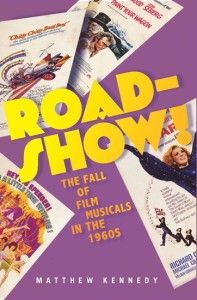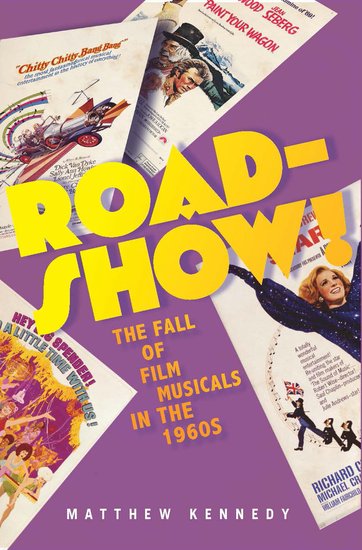 Roadshow! The Fall of Film Musicals in the 1960s
Roadshow! The Fall of Film Musicals in the 1960s
by Matthew Kennedy
Oxford University Press. 307 pages, $35
“ROADSHOW” was a film industry term for a big-budget movie featuring overtures, intermissions, and colorful souvenir programs. These reserved-seating-only first runs were swanky affairs in opulent theaters, occasions for families to dress up. Only after they exhausted their exclusive runs in these lavish venues would these movies go into general release. Film historian Matthew Kennedy’s scintillating new book, Roadshow! The Fall of Film Musicals in the 1960s, is brimming with gossip and back stories about studio hubris and outrageous movie star tantrums that resulted in financial and artistic disasters, ending the lucrative roadshow tradition.







